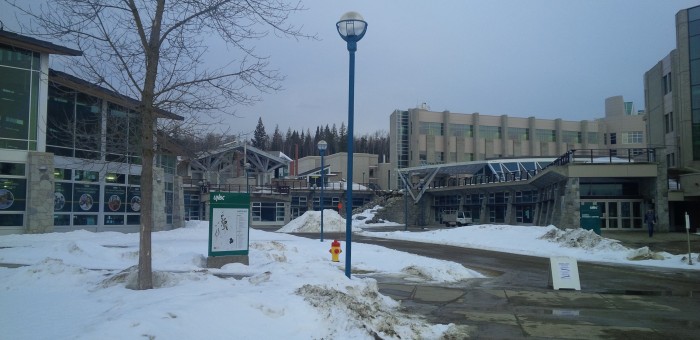British Columbians deserve an independent public inquiry into money laundering
Below I reproduce my opinion piece on the need for a public inquiry into money laundering that was published in the Vancouver Sun today.
Vancouver Sun Letter
B.C. has been the victim of organized crime for more than a decade and at least two of our governments have known about money laundering operations. It is time for action on behalf of British Columbians.
In recent months, we have seen revelations that money laundering is extensive and pervasive in B.C. Last year, the G7’s Financial Action Task Force, which identifies threats to international order, reported that $1 billion a year is funnelled through B.C. casinos. The provincial government admitted it was not fully aware of what had been going on.
Multiple whistleblowers have come forward to expose wrongdoing and we have learned that the initial estimates of money laundering were staggeringly low. Indeed, the attorney general announced in January that as much as $2 billion of dirty money flowed through B.C.’s casinos and housing market in a single year. We know now that this issue is directly tied to the opioid crisis, which has taken so many lives. This underground industry is directly linked to the more than 1,400 people who died due to opioid overdoses in B.C. last year. Money laundering has also affected our housing market, contributing to skyrocketing housing prices.
People are losing trust in government. That cannot continue.
How can this level of crime exist without punishment or even knowledge? These unanswered questions are precisely why we have a duty to act quickly and decisively to get to the heart of what has unfolded and how we can address it.
We need a public inquiry.
An inquiry functions outside of partisan influence or criminal jurisdiction. Like the Charbonneau Commission in 2011, public inquiries can supplement criminal charges with real, actionable recommendations to identify, reduce and prevent such events from reoccurring. That is something that criminal charges are unable to address. In other words, it is about more than getting to the bottom of who is guilty, it is about changing the toxic environment that allowed these systemic abuses to occur in order to safeguard the public interest going forward.
B.C.’s international reputation as a haven for money laundering is now known, not only to international criminal networks but also to governments and citizens across the world, with opinion pieces hitting the pages of majors newspapers like the Washington Post. The “Vancouver model” has become synonymous with international organized crime. Our reputation is in tatters.
More than 76 per cent of British Columbians support a public inquiry. The cities of Vancouver, Victoria and Richmond, and the B.C. Government and Service Employees’ Union have all formally called for an inquiry.
While an inquiry would cost millions and take years to complete, the costs that have been carried by our province for years are far greater. The issue hints at corruption and a culture of silence condoned at the highest levels. An inquiry must be taken out of the hands of politicians and given independence to do its work.
Two weeks ago, I called on the provincial government to initiate a public inquiry into money laundering but they not committed to taking this crucial step. Money laundering was able to invade our province and the public deserves full answers and a clear path forward to ensure that we root it out. That is why I and the entire B.C. Green caucus will continue to insist that we get an independent public inquiry into money laundering in the province.
Progress towards creating 2900 new tech-related spaces in postsecondary institutions
Budget estimate debates for the Ministry of Advanced Education were held yesterday. I took the opportunity to ask the Minister about government’s progress towards creating the promised 2,900 additional tech-related spaces in public post-secondary institutions. This was supposed to result in 1,000 additional grads per year by 2023.
Below I reproduce the text and video of the exchange. As you will see from the response, I am pleased that the government appears to be on track to reach this target.
Video of Exchange
Text of Exchange
A. Weaver: Thank you. I appreciate that.
The next question is with respect to the government announcements regarding the tech industry and the 2,900 additional tech-related spaces that the minister announced would be made available through public post-secondary institutions. This was supposed to result in 1,000 additional grads per year by 2023. Start-up funding was $4.4 million last year, but was expected to increase to $42 million.
I have two questions on this particular aspect. Is this plan still on track, number one? Two, how many spaces were added at B.C. post-secondary institutions last year?
Hon. M. Mark: Yes, the plan is on track. We began with 380 full-time-equivalent student spaces. We have a multi-year plan, to the member’s question. It started with an investment, as he noted, of $4.4 million to post-secondary institutions in 2017-2018. It increased to a total of $7 million in 2018-2019, and it continues to increase over the course of the new three-year fiscal plan. In 2019-2020, we plan to provide $24.9 million in funding, with further increases to come in subsequent years.
A. Weaver: Thank you to the minister for the answer. According to the CEO of the B.C. Tech Association, access to talent is the single greatest barrier to growth for B.C. tech companies and the industry as a whole. In fact, it’s got to such a state in British Columbia that there are companies acquiring other companies solely for the talent that the company actually holds.
I’m wondering whether or not government believes that the investments they’re making are adequate — what metrics are they using to determine whether or not they are adequate? — and whether or not they believe their goals are being reached.
Hon. M. Mark: I want to acknowledge the work of B.C. Tech. We’ve got the third annual tech summit coming up next week. We’ve got a huge delegation of young people that are going to come from across the province to participate in that forum.
It’s a continuation of previous work that was done by the former government. But we’re talking about three years. So when the member asks, “is this significant…?” It’s a start; 2,900 seats is a lot for this system. It’s the first lift in a decade.
We’re very, very proud of that. We also have to look at the system and their capacity — the availability of facilities, equipment and instructors. So we will continue to invest in tech spaces, and we’re going to continue to work with industry. For right now, we’re just very proud of this first step. There will be more.
When will BC get a needs-based grant system for postsecondary education?
Budget estimate debates for the Ministry of Advanced Education were held yesterday. I took the opportunity to ask the Minister whether she was considering reintroducing a needs-based grant system for postsecondary students and, if so, when?
Below I reproduce the text and video of the exchange. As you will see from the response, I am cautiously optimistic that we will be heading in this direction.
Video of Exchange
Text of Exchange
A. Weaver: I have a number of questions. To speed the process up, we’ve delivered them through to the minister’s office in advance. Hopefully, we’ll be able to get through these in a timely fashion.
My first question is with respect to student loans and need-based assessment. We are, as the Chair will know, the only province in Canada without a form of a needs-based grant system for post-secondary students. We used to have one in British Columbia. In 2004, it was eliminated.
My question is: is the minister considering reintroducing a needs-based grant system and, if so, when?
Hon. M. Mark: Chair, I thank you for the question from the member opposite.
We are committed to making post-secondary education training more accessible and affordable. Every year we provide approximately $56 million to students to reduce funding barriers and improve access and affordability. Of this amount, approximately $32.3 million will go to over 20,000 students to reduce B.C. student loan debt in 2018-2019.
We also provide targeted debt reduction to students completing programs for certain in-demand occupations — to medical and child services professionals working in underserved communities — as well as to students with disabilities.
But there is more to do. Students are telling me that the upfront costs of a post-secondary education are also a barrier. We want to ensure that we have the right mix of financial supports in place to help students be successful. The previous government had 16 years to shape the student financial aid system in British Columbia and introduced a number of new programs while discontinuing a number of others, including replacing the previous needs-based access grant with the loan reduction program.
I’ve asked my team to take a close look at the full range of financial supports we provide to ensure the right supports get to the right students at the right time. We will not leave British Columbians behind.
I thank the member opposite for the question.
A. Weaver: I appreciate the answer. I’m just wondering if we can potentially get a yes or no on that. Is the minister considering a needs-based grant system or not? I appreciate the other information she gave, but the question was quite specific as to whether a needs-based grant is expected to be introduced in the province of British Columbia. We are the only province in the country of Canada to not have such a system in place.
Hon. M. Mark: We are considering it, but we’re doing the policy work. There is a saying: fail to plan, plan to fail. We’re reviewing the number of resources available to students. We want to hit the right target.
Celebrating the SPCA Wild Animal Rehabilitation Centre
Tonight I had the distinct honour of providing the opening remarks at the BC SPCA Spring into Wildlife celebration of the Wild Animal Rehabilitation Centre (Wild ARC). I took this opportunity to explore the innovative work being done by the District of Oak Bay, in partnership with the Urban Deer Stewardship Society and the Province of British Columbia, to introduce an evidence-based approach to urban deer management.
Below I reproduce the text of my remarks.
Text of my Remarks
Thank you for inviting me to attend this evening of celebration of the work of BC SPCA’s wild animal rehabilitation centre, as well as for providing me with the opportunity to offer some remarks about urban wildlife.
As the MLA for Oak Bay-Gordon Head, I often hear from constituents and community groups about the urban deer population. To address the situation properly we have to look at the root causes.
Human development has, over time, increasingly destroyed the deer’s natural habitat. In addition, their new habitat in our neighbourhoods removes many of their natural predators. As a result the local deer population has increased substantially. What was once a novelty to see is now an everyday occurrence.
It’s rare if we don’t see groups of deer as we walk, bike or drive around town. When we see one deer cross the road, we are extra vigilant for others, especially the fawns and yearlings usually following close behind.
The species of urban deer common in our area is the Columbian Black-tailed Deer. These deer are native to North America and have adapted to a variety of ecosystems over thousands of years. They have managed to adapt to our urban habitat and continue to share our beautiful, green urban landscape.
I am a big supporter of the District of Oak Bay’s approach to deer management through their plan for a contraception program. Oak Bay Council first adopted this approach in late 2016 and I worked with council to ensure they had access to provincial resources to initiate it.
What resulted was a three-way partnership between Oak Bay, the Province of BC and the non-profit Urban Wildlife Stewardship Society (UWSS). The Province provided the partnership with cost shared funding to research and test non-lethal, evidence-based methods of reducing the urban deer population.
UWSS operates under a provincial wildlife permit, which can only be granted if the project meets stringent animal care regulations and requirements.
The latest estimates indicate a local deer population of between 72 and 128 deer.
The contraceptive regimen won’t eliminate our deer population. The hope is that the population will level out and then start declining. Patience is required but it is the humane thing to do.
It’s good to see this program underway.
As you might imagine, I believe that it’s inhumane to sit back and watch our urban deer die horrible lingering deaths due to car collisions. We know that the number of deer hit by cars has increased. In 2010, 8 deer were killed in Oak Bay by cars. That figure had increased to 48 in 2017. For the last 3 years, there have been more than 40 deer carcasses picked up annually by municipal staff in Oak Bay.
In my view, a cull of deer is not the answer. The contraceptive program is much more humane. Our urban deer, by nature, have absolutely no concern for municipal borders.
If there were to be another cull of deer in Oak Bay (one previous deer cull in 2015 totalled 11 deer), the space created would quickly be filled by deer in neighbouring areas. Paradoxically, a cull would likely increase the local deer population as Kelowna demonstrated. After five years of culling, the deer population actually increased by 36% there.
The Urban Wildlife Stewardship Society adheres to the principles of Compassionate Conservation. Humane treatment is their utmost priority. They have the support of the BC SPCA, the Victoria Human Society and they cooperate with BC’s provincial veterinarian who oversees all wildlife care for the entire province.
I look forward to hearing from UWSS about the progress of this contraception program and fully support their non-lethal approach to wildlife stewardship. Their work is evidence-based, utilizing leading-edge scientific tools. You can see the most recent report from UWSS on the District of Oak Bay website.
Expanding on the urban wildlife in my local district to the provincial challenges that arise when humans encroach on animal’s habitats, I also wanted to take a moment to reference some of the work my BC Green colleagues and I are doing at the legislature to protect wildlife.
Soon after the 2017 election we became the go-to office for people worried about their local ecosystem. We quickly learned that we didn’t have the capacity to intervene on each case, so we channelled our efforts into tackling the overarching, systemic issues that were causing these local problems: inadequate habitat protection, weak environmental assessment laws, disregard for cumulative effects, poor land use planning, problematic governance of resource development, lacking meaningful consultation of First Nations, and, of course, climate change.
We are working on all of these files, and have already made progress on each. My BC Green colleagues and I will continue to work to make things better for the animals we share this province with and have the utmost respect and appreciation for the work the SPCA and Wild Arc does to make that a reality for the animals in your care.
Thank you again for the kind invitation to attend this evening to celebrate the work of Wild ARC.
Bill 4: Witness Security Act, 2019
Today in the legislature we debated Bill 4: Witness Security Act, 2019 at second reading. This bill would establish a witness security management and support program in British Columbia. Witnesses are essential to justice in our province. They come forward, often at great personal risk, to help us ensure a safe and a just society. The least we can do is to protect them in return.
Below I reproduce the video and text of my brief remarks.
Video of Remarks
Text of Remarks
A. Weaver: It gives me great pleasure to rise and stand in support of Bill 4, the Witness Security Act, 2019. This bill takes the important and necessary step of establishing a provincial witness security program.
As you know, hon. Speaker, witnesses are essential to justice in our province. They come forward, often at great personal risk, to help us ensure a safe and a just society. The least we can do is to protect them in return.
Although the federal witness program does its best to protect these individuals, delays and strict program requirements have resulted in low witness retention. This, in turn, has hampered the administration of justice in British Columbia. By establishing a provincial program now, we are following the same path that other provinces, such as Alberta and Saskatchewan — at least temporarily — as well as Manitoba have followed.
As members are aware, public trust in British Columbia’s government has been rather shaken of late. Money-laundering and its connection to the crises involving real estate and opioids have abounded in the newspapers. There have been serious allegations made in our own legislature that point to a culture of entitlement and abuse of power.
In light of these events, it’s more important than ever that we restore the public trust by improving our justice system. British Columbians must trust our judicial system, not only to hold people accountable for their actions but to protect the people who do an immense public service by coming forward as witnesses.
I’m pleased to see this legislation before us today, as it, in my view and the view of my caucus colleagues, marks another step forward in restoring public trust in British Columbia.
With that, I thank you for your attention and take my place in the debate.








